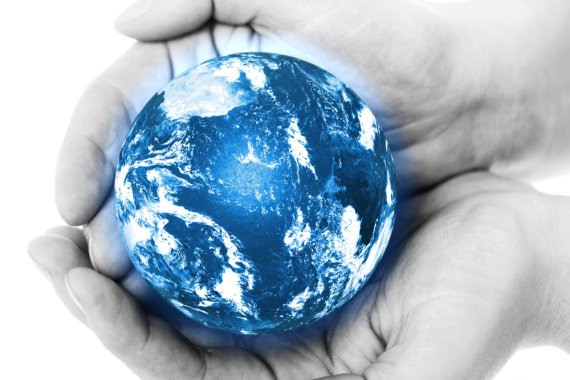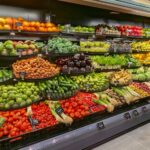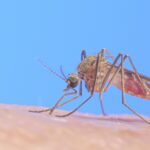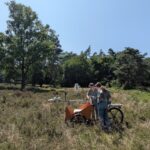Luc van Hoof, a researcher in European Research Development at Wageningen Marine Research, coordinated the study. He and his colleagues asked 92 European stakeholders, including marine biologists, policymakers, businesspeople and nature conservationists, to spend a few sessions brainstorming about how people might use the sea in 2050. ‘We imagined four different future worlds that are all realistic but are very different to each other.’
At present we focus most of our efforts to solve the food supply problem on land. By making sustainable use of the sea, we take the pressure off agricultural land and fresh water.
Luc van Hoof, researcher in European Research Development at Wageningen Marine Research
Eco-warriors
In to the first scenario, there is a European policy for sustainable (small-scale) fisheries and aquaculture by 2050. It is important to consumers that we treat the ocean responsibly. Environmental movements and small-scale fisheries have a strong influence on the public debate. Knowledge is shared widely and everyone can access information. Scientists help develop products with a low environmental impact and look for new materials and plant-based products such as microalgae and seaweed. A lot of attention is paid to animal health and welfare.
Own interests first
Due to an economic crisis, in the second scenario, politicians are preoccupied with crisis management. There is no internal collaboration between EU member states. They face food shortages and compete with each other in using the sea. There is not much demand for expertise and only limited scope for scientific research, which focusses mainly on increasing food security by, for example, developing technologies for food processing and aquaculture. People are also trying to identify ‘new’ edible species.
EUtopia
In the third scenario, European and national policy are harmonized. Levels of education are high and people are very aware of health and environmental issues. The marine ecosystem is doing well: the number of species is going up as a result of climate change, although certain species such as sole are in decline. Science pays a lot of attention to sustainable fisheries. There are breeding programmes for recovering species, and researchers are giving thought to the best use of by-products, such as in animal feed or the pharmaceutical industry.

Fortress Europe
In the fourth scenario, Europe has closed its borders and is maximizing its exploitation of the sea. The ecosystem is holding its own but is under pressure. Research is almost entirely privately funded and financiers are the owners of the knowledge it produces.
Research programmes mainly focus on long-term protection of food sources and ways of motivating member states to adhere to sustainable fisheries targets. Less food comes from the sea. Fisheries try to compensate by investing in new boats and techniques.
Better use
The scenarios sketched are based on the European situation but are relevant worldwide, says Van Hoof. For him, the main message is that we do not make enough use of oceans currently. ‘At present we focus most of our efforts to solve the food supply problem on land. By making sustainable use of the sea, we take the pressure off agricultural land and fresh water.’
In all the scenarios it becomes obvious that there is a need to improve aquaculture, by farming fish in the open sea, for example. Other needs are for the development of seaweed production and less complex management systems. So these topics are on the research agenda that the researchers drew up on the basis of the four scenarios for Cofasp, the EU-funded research network on improving the marine economy. The study has also been published in Marine Policy: https://www.sciencedirect.com/science/article/pii/S0308597X17308618

 The Earth’s surface exists of water for over 70 percent. Photo: Shutterstock
The Earth’s surface exists of water for over 70 percent. Photo: Shutterstock


